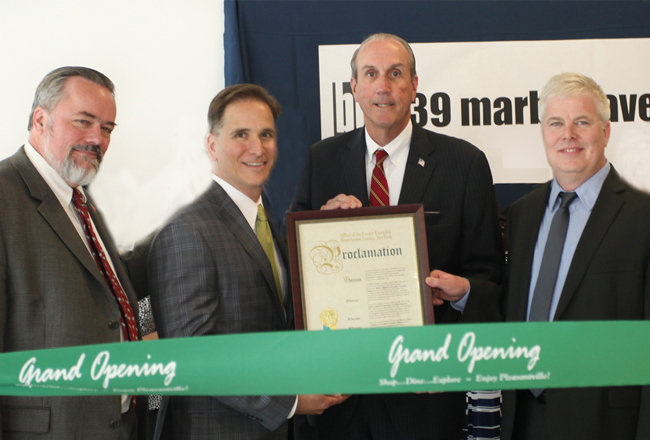It has been 21 years since California voters passed Proposition 215, making California the first state in the nation to permit the use of marijuana for medical purposes. Since then, 27 more states and the District of Columbia, Puerto Rico and Guam have enacted similar legislation. Taking legalization of the drug even one step further, Alaska, California, Colorado, Maine and Washington also have laws that permit recreational marijuana use. With the growing trend towards legalizing marijuana possession at a state level, what does this mean for employers?
STATE LAW
State statutes legalizing marijuana generally share the same commonalities. They set a limit to the amount of marijuana that may be in possession legally, typically one ounce but as high as 2.5 ounces in Maine. They also set a method by which the person using the drug is to be registered or identified, sometimes requiring the person to carry an ID card. Registration is generally valid for one year and most states require an annual registration fee paid to the state.
Some states, like Maine and Rhode Island, have enacted additional legislation that prohibits discrimination against people based simply on their registration for medical marijuana use.
Given that most state statutes legalizing marijuana are still in their infancy, there is little to no judicial guidance on the meaning or application of these laws to employers. Further confusing the issue is the fact that federal law still classifies marijuana as a Schedule I drug, meaning it is a substance with no recognized legal use.
THE AMERICANS
WITH DISABILITIES ACT (ADA)
Under the Americans with Disabilities Act, a person currently using illegal drugs is not a qualified individual with a disability and is therefore not protected by the ADA. The ADA likewise does not restrict when an employer may test an employee for illegal drug use since it is not technically a medical examination. A gray area arises, however, when a drug is legalized for medical purposes since the ADA protects the use of drugs “taken under supervision of a licensed healthcare professional.”
In 2012, the Ninth Circuit Court shed some light on how medical marijuana should be treated under the ADA. The court held that since the ADA defined illegal drug use by reference to federal law rather than state law and since federal law does not authorize medical marijuana use, neither does the ADA.
The judicial system is only starting to deal with the difficult task of reconciling federal and state legislation on medical marijuana. With such little guidance from Congress and the courts, employers need to carefully assess the application of the ADA to their medical marijuana situation before acting. For now, employer decisions in this area are a judgment call and the courts”™ evaluation of those actions remain an unknown.
THE DRUG-FREE WORKPLACE ACT
Under the ADA, an employer may be required to change its policies or grant an exception to an employee with a disability. However, this does not necessarily mean an employer must allow drug use on its premises, as the ADA explicitly states that employers may require employees to conform to the Drug-Free Workplace Act. Thus another unresolved issue exists when employees using medical marijuana ask for accommodations.
In most states, it appears employers have the right to terminate employees for job-site drug use under the Drug-Free Workplace Act, regardless of their status as a legal medical marijuana user. Unfortunately, since these issues have not been regularly litigated, employers should err on the side of caution and be sure of their rights before taking action against a medical marijuana-using employee.
May an employer terminate an employee for using or possessing marijuana on the job?
Generally, the answer is yes. Most states carve out exemptions for employers which allow them to prohibit any use of marijuana in the workplace, medical or not. In these states, employers do not have to permit their employees to use marijuana on the premises or during working hours. A violation of an employer”™s rule against marijuana use on the premises would be a violation of company policy and an employer may discipline an employee accordingly in these states.
Employers cannot be too careful, however. In 2016, an arbitrator in Oregon ordered an employee”™s reinstatement after he had been fired for medical marijuana use. Sixty-year-old Michael Hirsch was a senior programmer and system analyst who used medical marijuana to cope with the negative side effects of cancer treatment. The arbitrator based his decision on Hirsch”™s union contract, which states that an employee may only be disciplined for their off-duty behavior if it affects his job performance. Luckily for Hirsch, he performed well on the job and received many positive reviews.
While state law tends to favor the rights of the employer and very few Americans have union contracts that will protect them like Hirsch”™s did, employers should still consult the laws in their states to determine their right to terminate an employee for using, possessing or being under the influence of marijuana in the workplace.
May an employer terminate an employee for a positive marijuana drug test?
Some states have also carved out an exception for an employer to discipline an employee who tests positive for the drug, even if the drug was never used on the premises or during work hours.
Consider the 2013 Colorado Supreme Court case, Coats v. Dish Network, in which the court examined the question of whether smoking medical marijuana at home could be considered “lawful activity” under Colorado state law. It held that in order for activity to be considered “lawful,” it has to be lawful under both federal and state law. In finding the plaintiff”™s termination warranted, the court held that, because both recreational and medicinal marijuana are illegal under federal law, smoking medical marijuana is therefore not protected as a lawful activity.
While the decision made in Coats is only binding in Colorado, it provides a glimpse into how courts may approach the issue of off-premises drug use during nonworking hours. Again, given the lack of guidance on this fairly new issue, employers should step lightly when considering taking action against an employee for their off-premises use of marijuana.
Guidance on the issue of medical and recreational marijuana has been slow in coming so employers should seek legal counsel to be sure their workplace policies are in compliance with existing laws and before taking any adverse employment action against any employee suspected of marijuana use.
Robert G. Brody is the founder of Brody and Associates, LLC., a law firm with offices in Westport and New York City that represents management in employment and labor law. He can be reached at rbrody@brodyandassociates.com or by phone at 203-454-0560.
Lindsay M. Rinehart is an associate attorney at Brody and Associates. She can be reached at lrinehart@brodyandassociates.com.




















